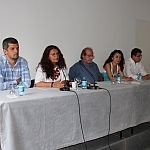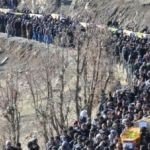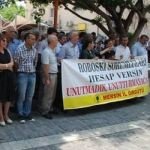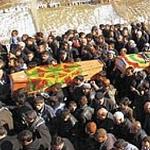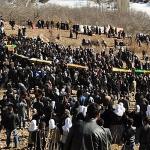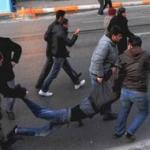PARLIAMENTARY COMMISSION IN ULUDERE
"General Staff and Government Bear Responsibility"
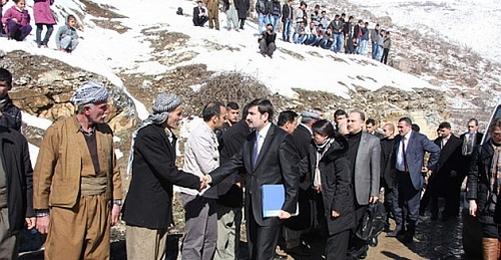
The Uludere sub-commission visited the province of Şırnak on Monday (6 February) to investigate the aerial strike that caused the death of 34 civilians on 28 December in the Kurdish-majority south-east of Turkey.
The sub-commission was established within the Parliamentary Human Rights Commission in order to shed light on the background of the incident. Members of the commission talked to military and civil officials in Şırnak. The previous day, they had talked to villagers, mainly relatives of the victims and survivors.
Peace and Democracy Party (BDP) Mersin Deputy Ertuğrul Kürkçü said in a statement made to bianet, "The incident started in Ankara and it was finished in Ankara". The investigation was going to be continued in Ankara from now on, he announced.
According to Kürkçü, the commission holds the opinion that the bombardment was a planned massacre, a view that is also supported by the facts, the deputy emphasized.
Republican Peoples' Party (CHP) Ankara Deputy Levent Gök announced the findings after talks with military officials:
"The units in Şırnak are not responsible for the operation. It was carried out entirely upon commands and orders coming from Ankara. Images and determinations related to cross-border actions are made from Ankara. Contrary to common belief, the military officials in Şırnak were not involved in the determination of the target".
"We think that the information and authority regarding the operation was held by the General Staff and Prime Ministry. We will continue our work in Ankara".
The commission talked to the divisional commander, the brigadier commander and his deputy, the regimental commander of the gendarmerie, the governor and his deputy and to the prosecutor.
Kürkçü told bianet about the talks with the villagers on Sunday and with regional officials on Monday:
"No responsibility of the local military unit"
* As understood from the picture that emerged today [6 February], local military units were apparently not part of the operation and neither hold authority nor responsibility. The authority was entirely held by the General Staff and the operation was evidently based on the permit for a cross-border operation.
* During the two weeks preceding and following the bombardment, the intelligence gave notice of increased activities of the Kurdistan Workers' Party (PKK) in the region. Many radio conversations were intercepted. There was a state of alarm in the region. Yet, the local units said that the measures they took were not related to the aerial strike.
* We will watch the images captured by the Heron drones for the period of four hours before the incident. The footage is currently at the Diyarbaykır Public Prosecution that is in charge of the investigation. At 9.00 pm the local units receive the order to cease their movement. They stop all actions in the region upon the order from Ankara.
* We are going to talk to the General Staff, the Prime Ministry and the Ministry of the Interior. We will continue our investigation in Ankara.
* What the villagers told us matches with our talks held with officials. The villagers said that they had not received any warning from the military officials. They told us that everybody was used to the cross-border trading and that they experienced this attack all of a sudden.
"Started and finished in Ankara"
* The villagers deemed the incident a planned massacre and this is obvious. What needs to be revealed now is who gave the order for this massacre and why. I logically assumed that this was a planned massacre even before we were able to access that much detailed information.
* Now, my opinion was supported by facts. I think that this was a cross-border operation and that the responsibility lies with the General Staff and therefore with the political power. This is what I think after all I have heard. The incident of Roboski [one of the affected villages in Uludere] started in Ankara and was finished in Ankara. We hope to be able to complete our investigation within two months, maybe even earlier. (AS)
bianet submits shadow report to UN Human Rights Committee

Imprisoned lawyer exposes use of disciplinary investigations to pressure political prisoners

Tap water ‘smells of bleach’ in Muğla prison

Censorship on a letter from prison describing hunger

Prisoner on hunger strike: 'I am alone without sunlight'






